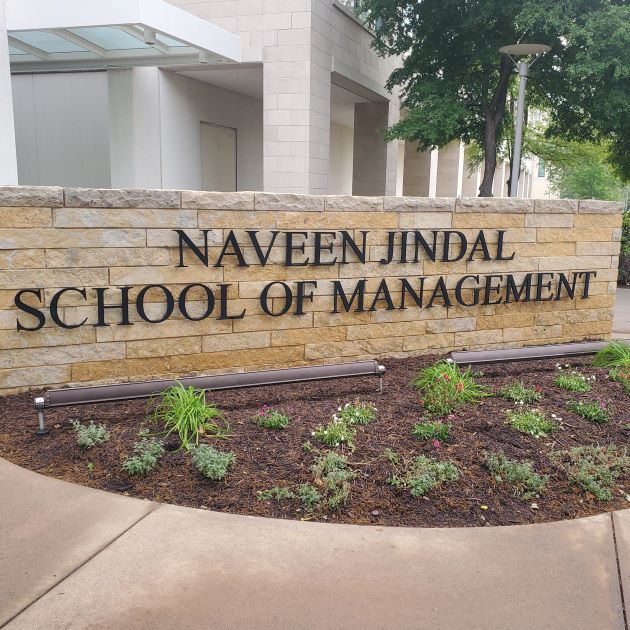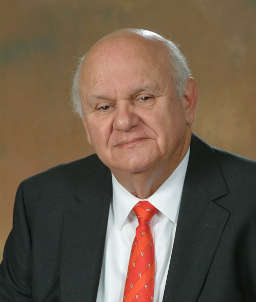
When Stephen Molina took the reins of the new Energy and Sustainability (ENGY 6v99) course, he told Jindal School Dean Hasan Pirkul he would need a bus.
“As smart as our student body is, sometimes feeling it, smelling it and looking at it is very useful to understanding something,” said Molina, who has been at UT Dallas since January 2016 and recently was named director of the MS in Energy Management program.
A graduate-level course, Energy and Sustainability covers major shifts in the global energy industry and the resulting impact on foreign and domestic energy policies, the environment, and corporate and government sustainability initiatives.
“Sustainability is the issue of the hour,” Molina said. “Sustainability goes well beyond oil and gas, coal and renewable energy. We spend quite a bit of time studying water issues and population issues and how they affect a country’s developments. We also talk about climate change. And we do quite a few field trips.”
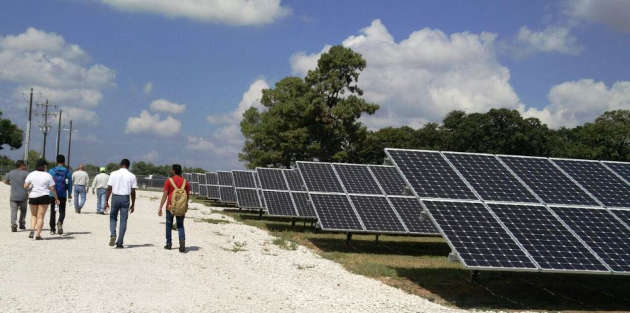
So far the class has visited CoServ, a solar co-op in Aubrey, Texas, and the Tenaska Kiamichi power plant near Kiowa, Oklahoma. Molina chooses facilities close enough for one-day visits. The Energy and Sustainability class goes, and he invites students from other energy classes as well as members of The Energy Association UTD — until the bus is full. He hopes the other two field trips this semester include a coal-fired power plant and a nuclear power plant.
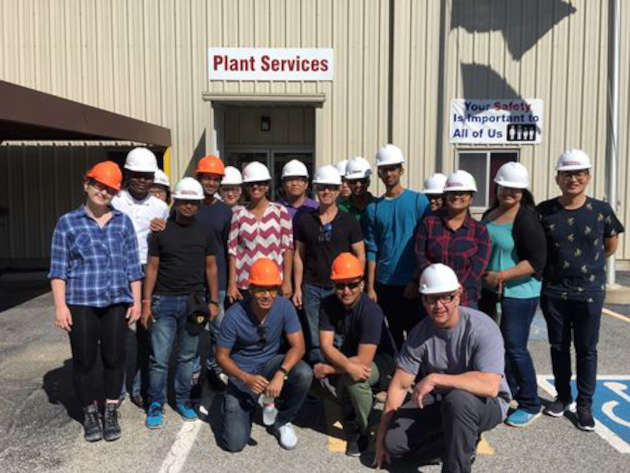
“You can look at a movie and read about oil and gas drilling all you want, but until you actually stand on a drill floor and see it done or see the pipe that’s being used, you don’t get it,” said Molina, who has spent 43 years as an oil and gas attorney. “And I think that’s what happened at both the solar plant and the power plant.”
The CoServ tour began with a presentation from a co-op engineer, who shared schematics and explained how solar panels turn the sun’s rays into electricity. “They not only went over the process, but we also talked about the economics and the business of solar,” Molina said, noting that prior classroom discussions considered if solar and wind could survive without government tax credits and subsidies.
Following the presentation, the group toured the property. “We looked at the panels, and they explained how they’re made and what’s in them. As we walked, we spent a lot of time talking about the industry — how they feed electricity into the grid, what happens when the sun’s not out, storage issues,” Molina said.

“The concept of an electric cooperative power plant was new to me, and this visit got me interested in it,” said Neeraja Dharme, a second-year graduate student in the MS in Energy Management program who is in Molina’s class.
The Tenaska Kiamichi visit also began with a presentation. “The power plant tour was more extensive,” Molina said. “We actually walked the whole thing. An electric power generation plant is pretty big.”
Dharme, who came to UT Dallas from Pune in Maharashtra, India, said she was surprised to learn that a 1,220-megawatt power plant that provides electricity to more than one million homes is operated and maintained by only 35 employees. “It was very interesting to understand how these 35 employees could operate the plant so efficiently while maintaining the reliability of generation to nearly 97 percent.”
She said the Energy and Sustainability course field trips add practical knowledge to the theory students learn.
“It is one thing to imagine how a certain power-producing unit might look and how complex the operations might be, and another to see the grandeur of these generation units, their extremely complex infrastructures, sensitivity of operations and maintenance, and of course the output they generate,” said Dharme, president of The Energy Association UTD. “These field trips provide us with the intricate knowledge bits that one can only achieve by experience. We also get to interact with the team working at these power plants and understand their roles and responsibilities, important practices and processes they follow to achieve the success of running these plants.”
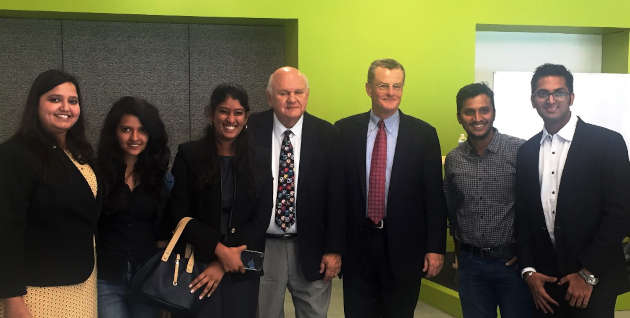
In addition to field trips, Molina brings in guest speakers. Bill Magness, president and CEO of the Electric Reliability Council of Texas, spoke Nov. 3 to students from four Molina classes. (When news of Magness’ visit spread, other instructors asked to bring their classes.)
“We bring in a lot of people like that,” Molina said. “I try to mix it up. There’s a lot more to energy than just oil and gas.”
Bringing students networking opportunities beyond the classroom, Molina also is finishing the paperwork to establish a UT Dallas student chapter of the Association of International Petroleum Negotiators.
“It’s for international negotiators — people who manage energy assets, which is exactly what we teach. So it’s a perfect fit,” he said. “Students will have networking, they will learn a lot about the industry, and they will meet people from all over the world.”



